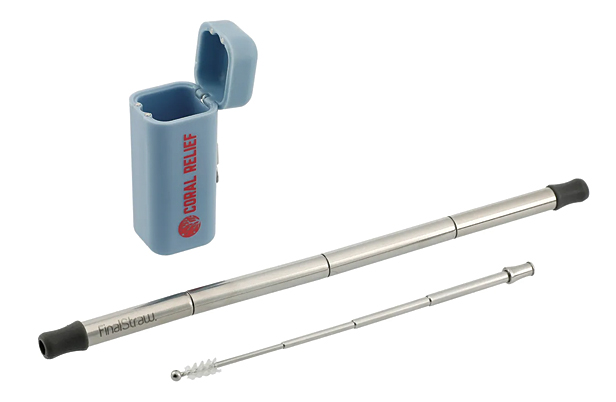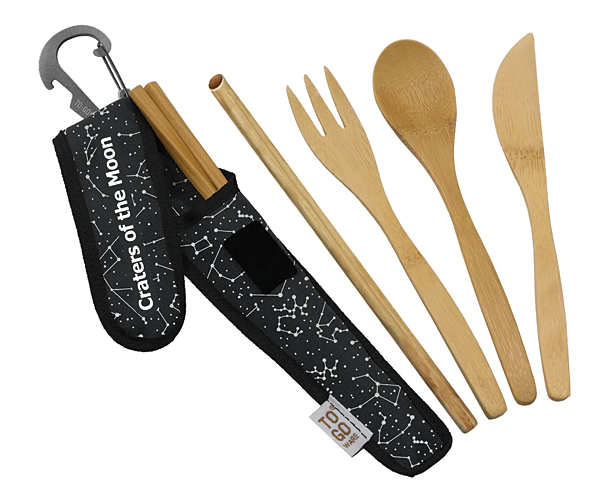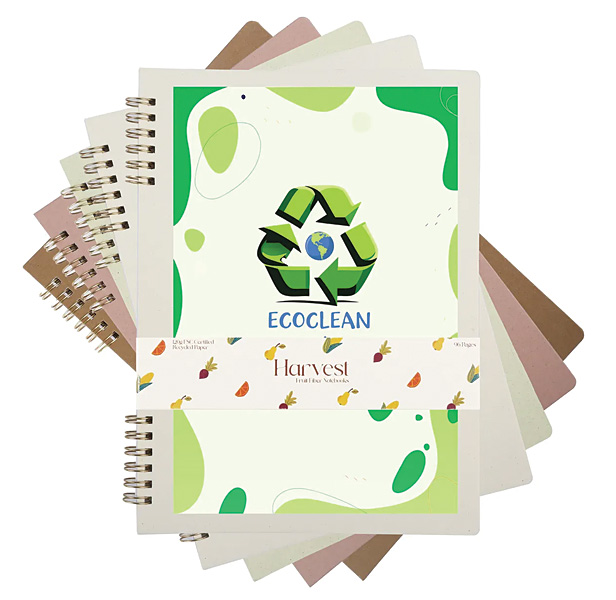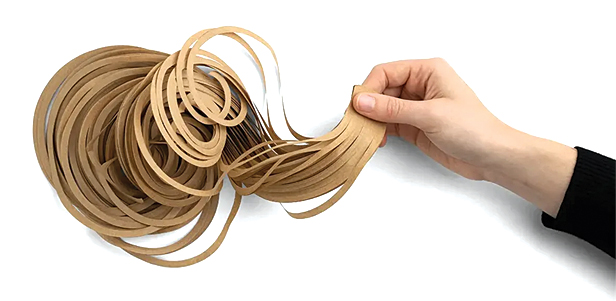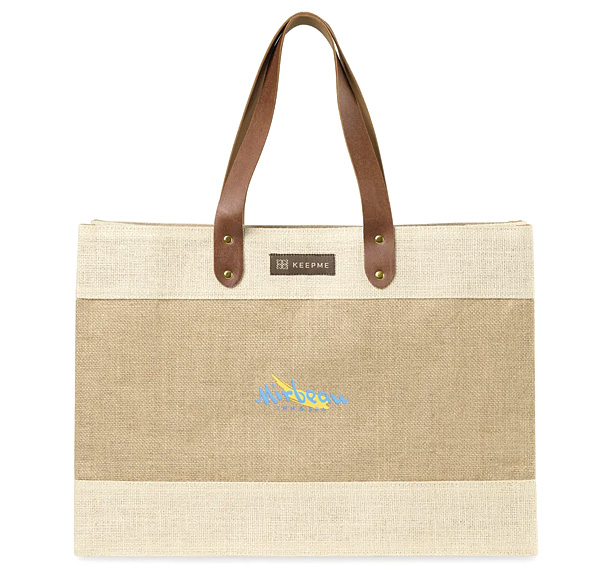Sustainability June 28, 2024
5 Ideas for Plastic Free July
Educate clients on how thoughtfully sourced products can help reduce plastic pollution.
July is about more than fireworks and cookouts. For millions of people around the world, it’s also a time to raise awareness about plastic pollution – and take active measures to cut down on waste.
Started in 2011 in Australia, Plastic Free July has become one of the most influential environmental campaigns. Individuals can go online and take a pledge to avoid single-use plastic packaging, target takeaway items, and/or go completely “plastic free” at home, in the office, while shopping or dining out, or at school.
The idea, according to the Plastic Free Foundation, is that small changes can add up to making a big difference.
Michelle Sheldon, president of Eco Promotional Products (asi/185797) and a member of the Promo for the Planet editorial advisory board, has been participating in the initiative for more than a decade.
“One of the hardest and most rewarding pledges I’ve made was going plastic-free for the month of July the year my son graduated from high school,” she recalls.
Sheldon threw him a graduation party, hosting 50 guests for a “single-use plastic free event.” Amenities at the celebration included catering-style water dispensers to avoid single-use plastic bottles, compostable paper cups, reusable wine tumblers, a selection of beverages in recyclable aluminum cans, stainless-steel place settings and absolutely no balloons.
The catering service Sheldon hired was required to use host-provided stainless-steel utensils and reusable serving tools and to offer guests bulk condiments to avoid wasteful packaging, as well as high-quality recycled paper plates and recycled paper napkins, rather than the standard individually plastic-wrapped napkins with plastic utensils.
“It was intentionally, thoughtfully planned and enlightened our guests and the catering company we hired,” she says.
The promotional products industry is often maligned for a reliance on cheap, plastic giveaways, but many promo pros are working to change that reputation. One way to move closer to that goal might just be taking the Plastic Free July challenge – while encouraging clients and colleagues, family and friends do the same.
Here are five ways distributors can help make positive change in July and beyond.
1. Offer reusable alternatives for single-use products.
FinalStraw reusable straw (1628-40) from PCNA (asi/66887)
There are plenty of brandable items that clients can swap out for single-use plastic, whether it’s a reusable, totable straw or a set of bamboo cutlery complete with a carrying case. Tumblers can replace plastic water bottles or single-use coffee cups. Consider high-quality totes for the grocery store – along with mesh bags for transporting produce. At home, products like beeswax wrap and reusable baggies can help eliminate the need for single-use plastic in food storage.
“It doesn’t take much to find options that are high-quality and reusable, but distributors need to be disciplined in supporting their clients in this way,” says Lou Elliott-Cysewski, a member of Promo for the Planet’s editorial advisory board and co-founder and CEO of CoolPerx (asi/556047).
2. Build awareness with reusable self-promos.
Premium bamboo cutlery set with carrying case (TGWPremium) from ChicoBag (asi/44811)
Sheldon says her son’s graduation party was a great way to raise awareness about going plastic-free, as were other events where she made an appearance. “Every party I attended that July, I showed up with my own drinkware and utensils,” she says. “There were many conversations about it at the time.”
Distributors can spark similar conversations and raise awareness by bringing self-branded reusable gear – including tumblers, reusable straws or cutlery – to networking events and other gatherings. Be sure to have a few extra on hand to gift potential clients.
3. Educate yourself and your clientele.
Harvest Fruit Fiber ring-bound notebook (99080) with a recycled fruit-fiber cover and 100% recycled paper inside from HPG (asi/61966)
The Plastic Free Foundation offers plenty of resources on its Plastic Free July website with tips on how to cut out single-use plastics at home, in the office, and out and about. Within the promo industry, many suppliers with sustainable product lines are also happy to share information about those products’ benefits and how they can help reduce impact. Pass on what you learn to your clients by hosting webinars or informal talks, though newsletters or some other means.
“I believe that promo companies have the responsibility of providing clients with the ability to make well-informed decisions,” Elliott-Cysewski says.
4. Cut down on plastic packaging whenever possible.
SpiroPack box filler (9SPN21100NAT) made from 100% recycled fiber from PWS (asi/75731)
Amazon recently announced that it is 95% of the way toward eliminating plastic air pillows in packaging (with plans to do away with them completely by the end of the year). Not long before that, Google shared that it’s on target to have plastic-free packaging by 2025 – and published a 69-page document explaining exactly how they did it, in part to help inspire other companies on a similar journey.
Considering how common kitting and drop-shipping are in corporate gifting, Elliott-Cysewski says it’s worth taking a page from those tech giants. Chameleon Like Inc. (asi/44558), for example, offers a variety of eco-friendly packaging filler, including “eco-shred” material made from its post-industrial cardboard scraps.
5. Be vigilant against greenwashing.
KEEPME jute market tote (101924) from Gemline (asi/56070)
As awareness about the plastic problem grows, there’s also been a sharp increase in greenwashing – the practice of making false or misleading claims about a product or policy’s environmental impact. Victor Macchia, a promo industry veteran and owner of Aloha Consulting, shares a stark example of this from a recent grocery shopping trip, where the clerk gave him a “free gift in honor of Earth Month” – a nonwoven polypropylene plastic shopper tote with a stiffened bottom made of polyurethane.
“Unfortunately, the only thing green about the bag was its color,” Macchia says. Though the tote could be reused for around two years, it came with no instructions on how to recycle it at the end of its life. “The material itself wasn’t made from recycled plastics, nor was it a type of plastic that typically gets recycled,” he notes, adding that only about 1% of polypropylene plastic is recycled.
Better – if not cheaper – options for distributors to offer, Macchia says, would be totes made of hemp, jute, organic cotton or rPET (recycled polyethylene terephthalate).
Another concern for many is the rise of biodegradable and compostable plastics. According to the Plastic Free July site, those terms – biodegradable and compostable – can be misleading since they don’t have a set definition; plus, such plastics often don’t break down in the environment. The UN Environment Program has advised that biodegradable plastics are not the solution for reducing marine litter.
Elliott-Cysewski concurs: “Many companies are leaning on compostable plastics to mitigate plastic waste, but it’s not a real solution.” She says such plastics aren’t circular and don’t end up as soil, as with traditional composting, but just break down into “ash and smaller plastic particles.”
“It actually has created more issues than anything,” she says.

Promo for the Planet is your destination for the latest news, biggest trends and best ideas to help build a more sustainable and socially-responsible industry.

